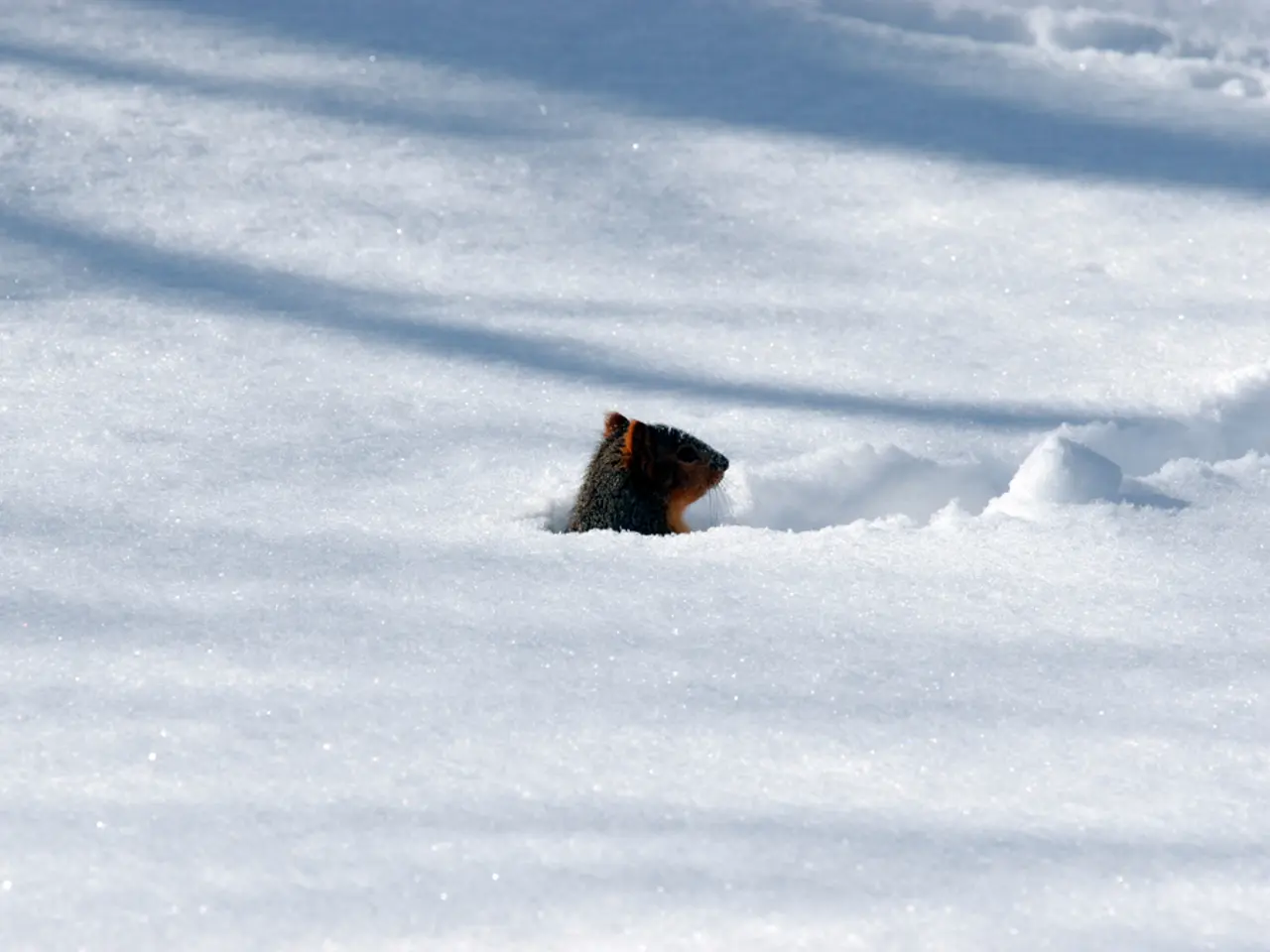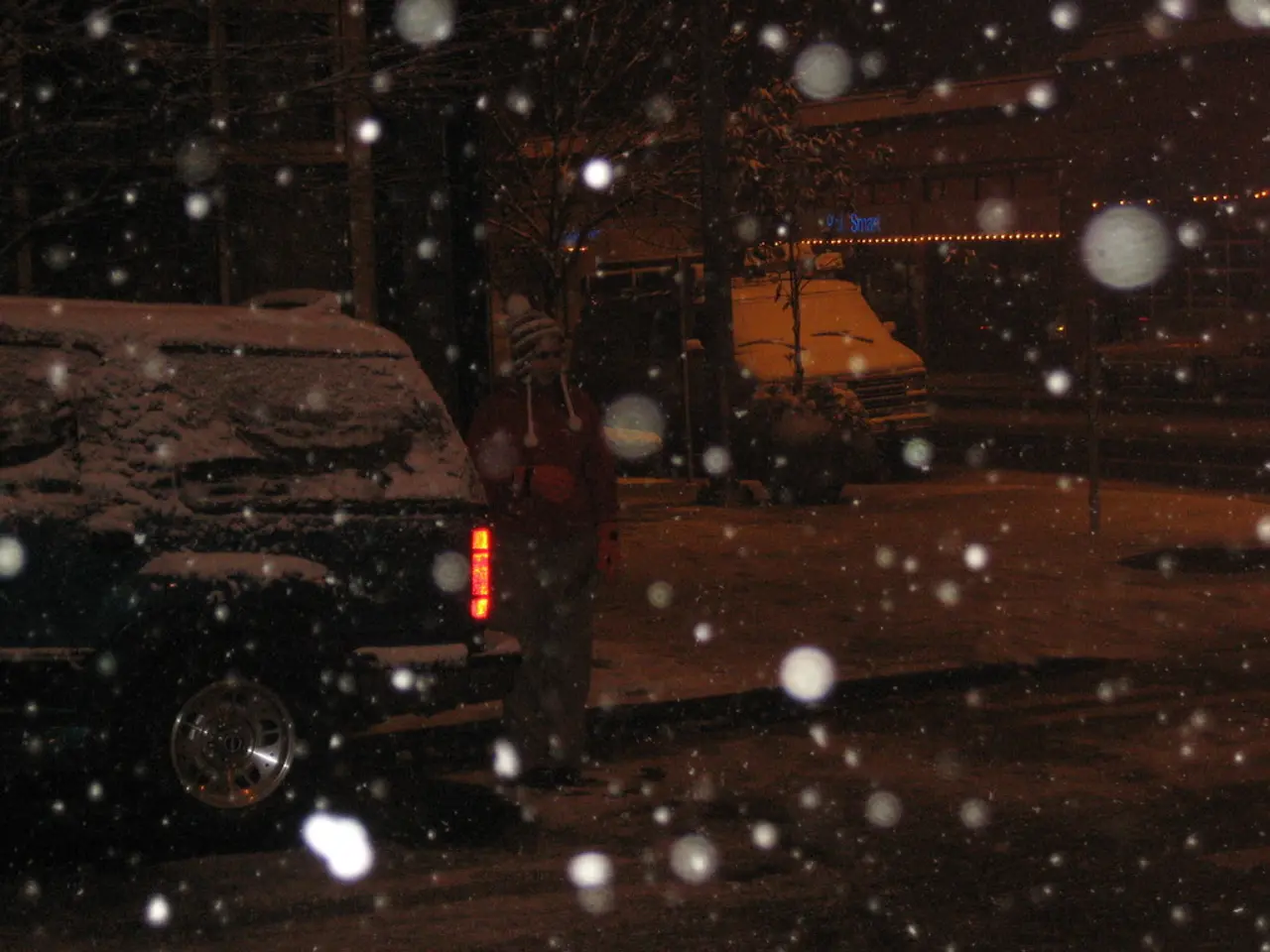Preparing for a Winter Rainfall Event
Preparing for Winter Storms: A Comprehensive Guide
Winter storms can bring heavy snow, high winds, and ice, which can cause serious damage to buildings if not prepared. Here are some effective measures to protect your home during these harsh weather conditions.
Securing the Building's Base
Clearing snow and ice away from a building's base before a storm is important. This helps prevent water from melting snow and ice from building up around the foundation, which can lead to water damage.
Inspecting and Preparing the Roof
Inspecting and preparing the roof before a winter storm is crucial. Look for loose shingles, cracks, or signs of wear. Clearing debris from the roof can prevent ice dams and leaks. Insulating exposed pipes in unheated spaces can also prevent frozen pipes.
Ensuring Proper Drainage
A working drainage system is key to directing water away from the structure. Cleaning gutters and downspouts can prevent ice buildup and water seepage under the roofing material.
Preparing the Plumbing
Protecting your plumbing from freezing is important during cold weather. Checking for gaps, cracks, or worn seals on windows and doors is important. Letting faucets drip slightly when temperatures fall below freezing can keep water moving and prevent freezing.
Inspecting Trees and Outdoor Structures
If a building is located in an area with a lot of tall trees, a structural inspection may be necessary to ensure they won't pose a danger during high winds or heavy snow. Trimming any tree branches that could fall onto a building or power lines before the storm is important.
Insulating Windows and Doors
Weatherstripping, caulk, or foam insulation can be used to block drafts and preserve indoor warmth. Older windows may benefit from storm window panels or insulating film.
Preparing Outdoor Items
Securing outdoor furniture, equipment, or anything that could be blown away is necessary before a storm. This includes storing or securing patio furniture to avoid damage.
High-Risk Areas
In high-risk areas, a sump pump may be a useful option to help manage excess water and prevent flooding. A quick inspection of your plumbing system can reveal problem spots that need attention before the storm arrives.
Professional Support
Our website provides licensed engineers for these services, making it a one-stop solution for all building-related needs. We also offer full-service support for property owners, HOAs, and condominiums, including structural inspections, damage assessments, architectural plans, and construction monitoring.
By following these steps, you can reduce the risks of structural damage, water infiltration, and heat loss during winter storms. Stay safe and prepared this winter!
In high-risk areas with tall trees, it's essential to ensure the trees won't pose a danger during winter storms by conducting a structural inspection and trimming any branches that could fall onto buildings or power lines.
When preparing the roof, architectural inspections to identify loose shingles, cracks, or signs of wear are crucial, followed by clearing debris to prevent ice dams and leaks.
A properly insulated building can help preserve energy during winter storms. This includes insulating windows and doors using weatherstripping, caulk, foam insulation, or even storm window panels for older windows.








